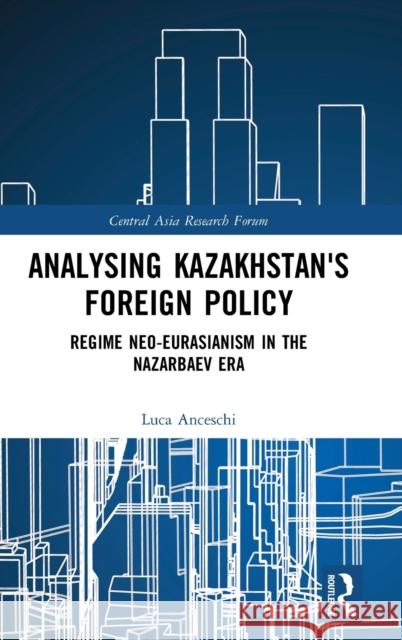Analysing Kazakhstan's Foreign Policy: Regime neo-Eurasianism in the Nazarbaev era » książka
Analysing Kazakhstan's Foreign Policy: Regime neo-Eurasianism in the Nazarbaev era
ISBN-13: 9780415711432 / Angielski / Twarda / 2020 / 196 str.
For much of the post-Soviet era, Kazakhstan's international relations developed against a specific backdrop: the Eurasian continent, a (vaguely defined) politico-cultural space with the modern Kazakhstani state at its centre. This book looks at the central role occupied by 'regime neo-Eurasianism' in the foreign policy of post-Soviet Kazakhstan. Using this analytical category to describe the version of neo-evraziistvo developed in Kazakhstan from 1994 onwards, the book considers regime neo-Eurasianism as a most defining example of the neo-Eurasianist trend. It looks at how Kazakhstani neo-evraziistvo emerged in an authoritarian context and was developed in a consistently regime-centric trajectory, and how it rapidly evolved into a force that unequivocally conformed to the interests of the Nazarbaev regime while wielding a decisive influence on the foreign policy of the Kazakhstani state. With case studies on identity and power, this book offers a ground-breaking analysis of Kazakhstani foreign policy, and is of interest to students and scholars of Central Asian Politics, International Relations and Security Studies.











